Register for free and continue reading
Join our growing army of changemakers and get unlimited access to our premium content
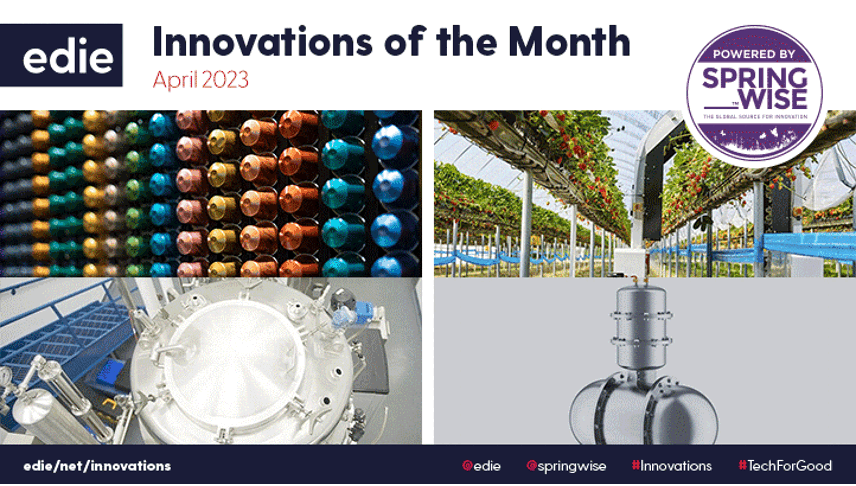
We know that we’ll need to dramatically change food systems in the decades to come, and a key focus will be on the fact that 30-40% of all food produced currently goes to waste. Our first innovation this month is tackling a well-known scourge of growers everywhere – one that leads to food being wasted before it is even harvested: powdery mildew. Using ultraviolet light and autonomous robots, a Norwegian startup is tackling this common fungal infection – without using harmful chemicals.
But if we are to really shift the dial on sustainable food production, we need to do more than make traditional agricultural models more efficient – we need whole new ways of producing food. And our second and third innovations this month are producing ingredients using entirely new processes. Zero Cow Factory, as its name suggests, is producing products that replicate dairy without the animals, while MicroHarvest is leveraging microbes to produce protein in highly efficient, de-centralised factories.
Food and drink not only has its own environmental footprint, its packaging also causes problems. One Spanish company – our fourth innovator this month – has therefore developed a countertop device that makes it easier to recycle notoriously tricky coffee capsules.
Elsewhere, our final two innovations are focused on the home. The first is a service that helps people build their own houses using cross-laminated timber. And these homes could be equipped with our final featured technology – a new type of heat pump that leverages the energy of sound.
Read on for our monthly green innovation briefing for April 2023.
Robots fighting fruit and vegetable waste
Powdery mildew is a fungal infection of the foliage, stems, and fruit of plants. It results in a characteristic ‘dusty’ coating, and among the afflicted species are crops like strawberries and grapevines. These fungal attacks can be an expensive headache for growers, but now Norwegian startup Saga Robotics is tackling the issue with robots and UV light.
Called ‘Thorvald’, the company’s robots look like a mobile airport metal detector that moves up and down each row of plants. Each shines powerful UV-C light onto the plants, protecting them from powdery mildew safely, without using any chemicals. UV-C light – a high energy wavelength within the ultraviolet range – is known to be an effective disinfectant and is used in a broad range of applications.
There are three different models of the Thorvald system tailored for use in polytunnels, open fields, and vineyards, and the company is currently focused on strawberries and grapevines – although its technology could theoretically be used on other plants.
The system is autonomous and can be adapted for different terrains. The robots have a modular design so they can be quickly customised for different applications, and this modularity also means that the company can design auxiliary tools such as strawberry pickers and grass cutters, which can be added as required.
Dairy without the cow
The dairy industry accounts for around 3.5% of annual global greenhouse gas emissions. Although the impact of dairy products is increasingly recognised, many are put off switching to vegan replacements because of the taste. Now, Zero Cow Factory is producing India’s first animal-free dairy that replicates the taste, texture, nutrient profile and appearance of cow’s milk protein.
The company has developed a patented technology that uses bioengineering of microbes and precision fermentation to produce dairy proteins, such as casein and whey, without any animals. Zero Cow Factory’s method is far more environmentally friendly than traditional dairy production, requiring 99% less land and 98% less water, emitting 84%less CO2, and consuming 65% less energy.
Zero Cow’s first product is an A2 Beta-casein – a protein found in normal dairy products, along with A1 Beta-casein. This latter protein is believed to have links with diabetes, heart disease, and digestive issues. By only using A2 Beta-casein, Zero Cow’s ‘Smart Protein’ is a therefore a healthier alternative to cow’s milk, and contains no antibiotics, growth hormones, cholesterol or saturated fat. The protein is also free from lactose, making it suitable for lactose-intolerant individuals.
Protein-rich ingredients made from microbes
The world recently passed a symbolic milestone when it reached a population of eight billion, but we are still some distance from what demographers expect to be the population peak. According to the UN, there could be as many as 10.4 billion people on earth by the mid-2080s before the population starts to come down again. Sustainably producing protein for this growing population is one of the key challenges for 21st Century food production.
Thankfully, startup MicroHarvest has a solution: making protein out of microbes. While the idea of eating micro-organisms might make us squeamish, microbes have, in fact, been used in food for centuries – from cheese to kefir, yoghurt to kimchi. All MicroHarvest has done is leverage this existing protein source by developing microbe-powered technology to produce protein- and nutrient-rich ingredients. And the real story? This process takes up a tiny fraction of the land and water required to grow crops or rear animals.
The company’s ingredients are grown in tanks that can be located anywhere in the world and operate 365 days a year. And it takes just 24 hours to convert the raw materials (the bacterial strain and a growth medium) into a final protein product – a much faster production rate than existing technologies.
Having secured Series A funding in September last year, MicroHarvest has plans to build a pilot plant in Lisbon, Portugal. It will also strengthen its research and development team to accelerate the commercialisation of its technology.
A coffee capsule recycling platform
An increasing number of people are using coffee pods at home and at work. While convenient, problem with these capsules is that very few are recycled, with leading coffee brand Nespresso estimating that only 30% of its consumers recycle the pods.
One of the main stumbling blocks in recycling coffee capsules are the grounds that remain in the pod after it has been used. Spanish company Recycap is making it easier for home users to recycle both the capsules themselves and leftover grounds with its React (Recycap Automated Coffee Technology) recycling device. Used pods are tossed into the device that then automatically cleans the capsules and separates the two materials for easier, more sustainable disposal.
The grounds can be collected for composting, and the cleaned capsules become easier to recycle in standard facilities. By removing the need for recycling facilities to separate organic waste from metal, the React device could save billions of pieces of recyclable rubbish from ending up in landfill or being incinerated.
The React device has the capacity to recycle up to 600 capsules per hour, making the technology convenient for large office buildings and in high traffic public spaces, such as grocery and convenience stores. Recycap has also created a coffee machine with the recycling technology integrated, so users can minimise the number of appliances they have on countertops.
Customised timber homes
Given the carbon footprint of construction materials, cross-laminated timber (CLT) is emerging as a lower carbon alternative for both domestic and commercial developments.
Finnish construction technology company Asumma aims to simplify the entire process of building a cross-laminated home by providing a concierge-type support service for new builds. The company provides customised homes.
As well as CLT walls, floors, roofs, and supports, Asumma homes include wood-fibre insulation and an airtight structure that incorporates natural and mechanical ventilation for the highest quality indoor air – without allowing moisture or mould to enter the home. The modular and bespoke designs significantly cut down on construction times, and all of the wood is sourced from responsibly managed Finnish forests.
Asumma provides seven different homes for buyers to use as a starting point for their build, and the company design team helps ensure that the layout and location of the home best suits the plot of land. Homeowners then get a completely bespoke design, selecting numbers and locations of rooms and additional detached structures, as well as custom additions such as heat pumps and solar panels for off-grid living.
Heat pumps that leverage sound energy
The International Energy Agency (IEA) calls heat pumps “the central technology in the global transition to secure and sustainable heating.” Although they tend to come with higher upfront costs than other heating options, their low rate of emissions and high rates of efficiency are driving sales to record highs. Now, a new type of heat pump leverages thermoacoustic power that transforms the energy of sound waves into heat or cold.
Equium’s Acoustic Heat Pump compresses or expands high-power sound waves to produce the desired temperature. The action requires very little power, and as the sound waves expand and contract, the movement produced is similar to that of a piston in a traditional engine, yet without the mechanical moving parts. It is possible to use the thermoacoustic pumps in most temperatures and climates.
The devices themselves are made from 100% recyclable materials and are designed for extremely low maintenance, with expected product life spans of up to 30 years. They are also easy for owners to install without requiring advanced technical skills. The elimination of greenhouse gas refrigerants combined with minimal maintenance needs contribute to the new pump’s efficiency, which further reduces long-term investment costs.
Springwise is the global innovation intelligence platform for positive and sustainable change. With a growing database of 11,000+ innovations, we are the place of record for innovation that matters. Springwise.com.
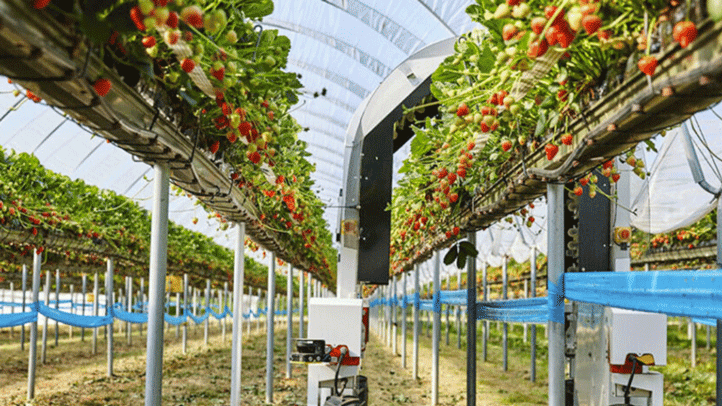
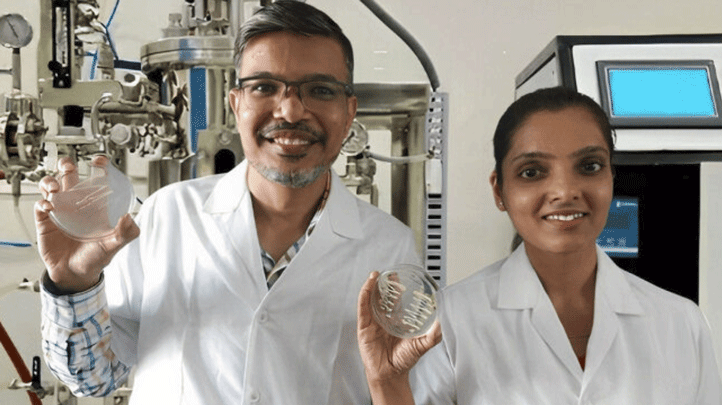
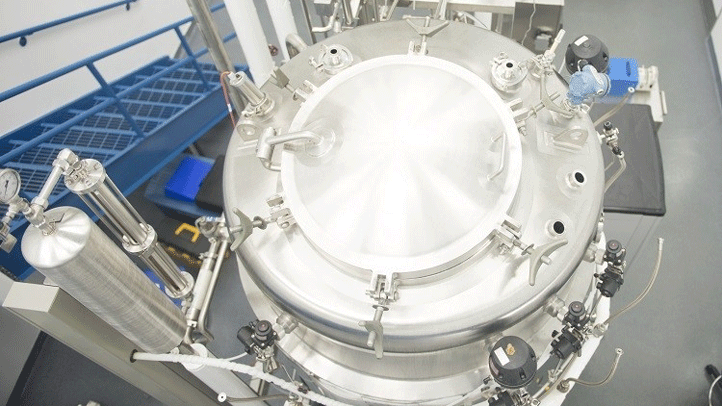
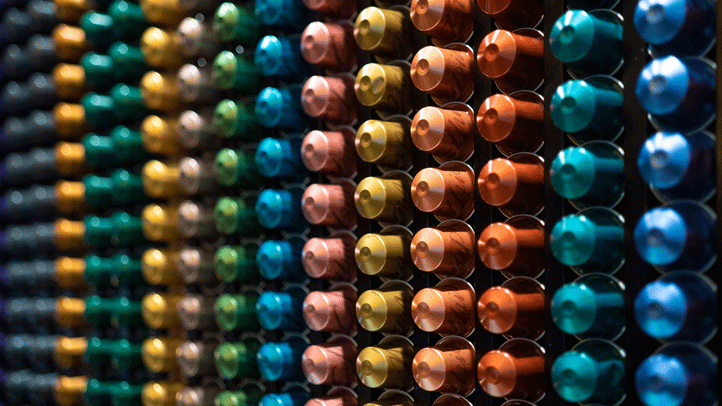
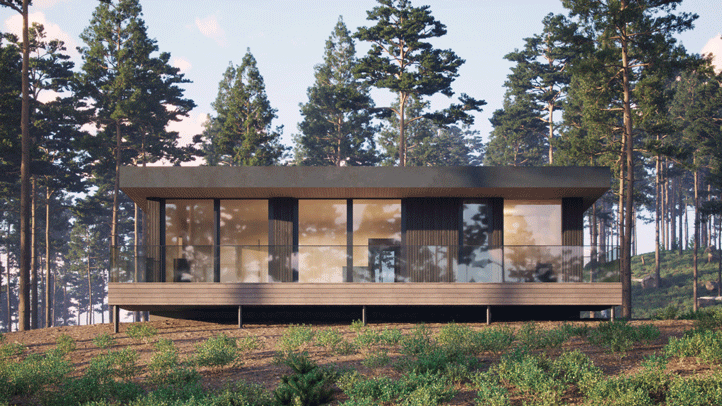
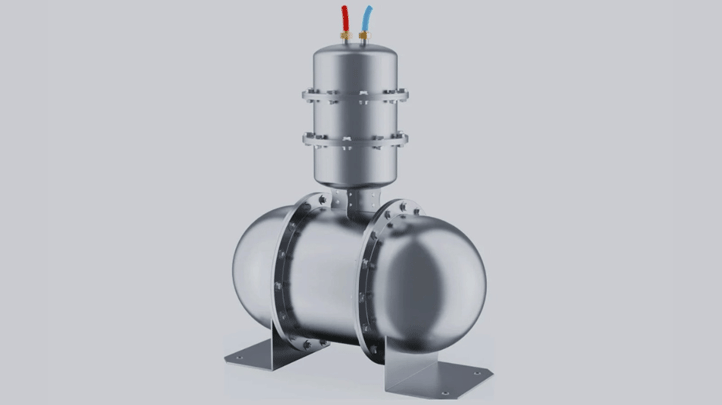


Please login or Register to leave a comment.